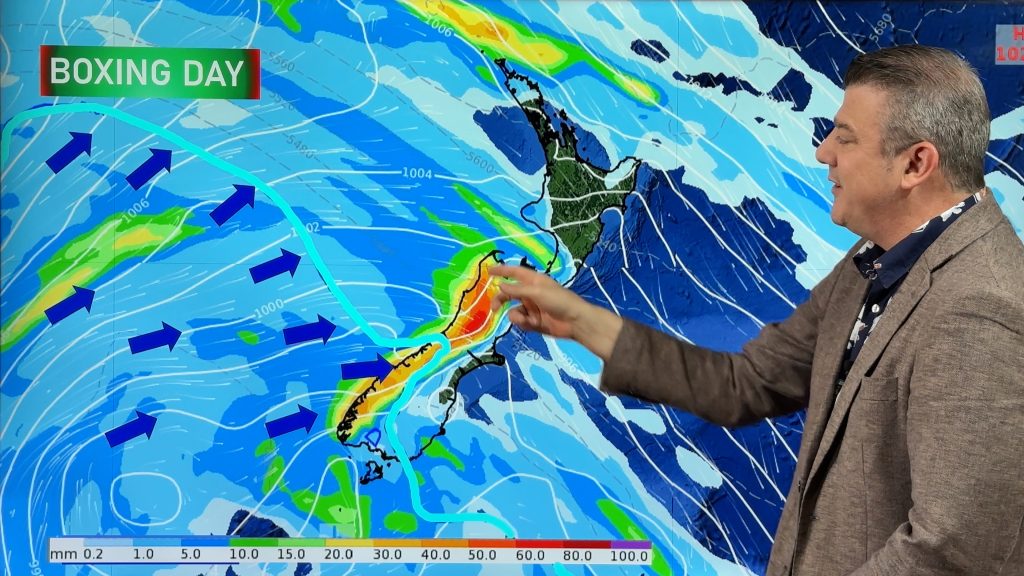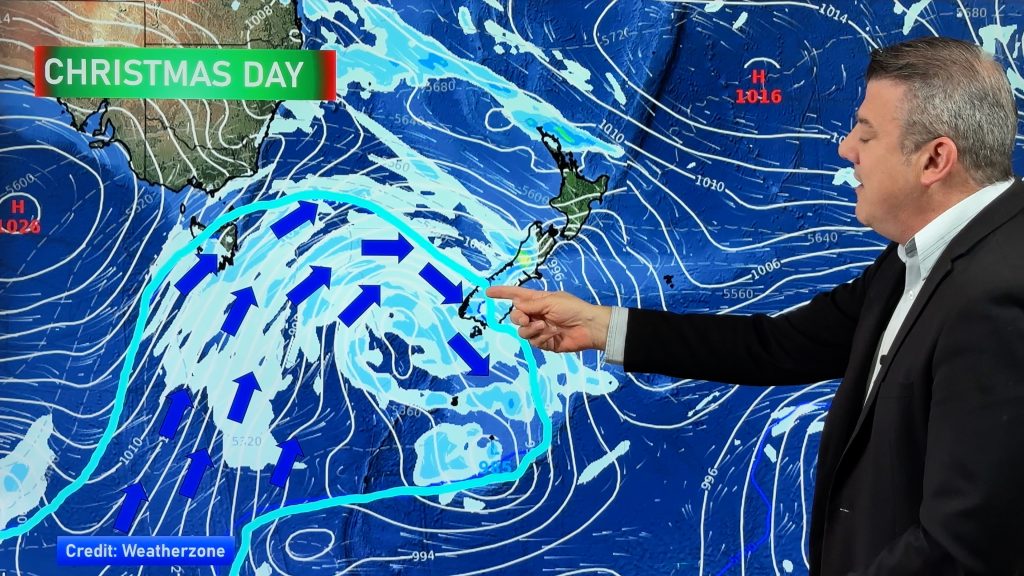
> From the WeatherWatch archives
Sunday’s scorching heat broke numerous records for the month of November and should linger until at least tomorrow.
Parts of Waikato, New Plymouth and Central Otago experienced their hottest-ever November weather.
One weather station in Cromwell recorded 32.3C, an all-time record for this month.
In the Waikato, a reading of 28.1C in Ruakura on Sunday was the highest in the region in 100 years of record-keeping.
National Institute of Water and Atmosphere climate scientist Georgina Griffiths said when temperatures exceeded 26 degrees this early in summer, people were likely to feel uncomfortable.
Aucklanders flocked to the beach to cope with temperatures above 26C, as well as stifling humidity.
The sustained stretch of sunshine was good news for swimmers as ocean temperatures climbed to 18C in Auckland and Coromandel and 16C at Mt Maunganui.
Sea surface temperature usually peaked at the end of February, at about 22C.
A large high continues to sit over New Zealand, which means the hot, dry weather will remain for several more days. Cloud will begin to settle over the North Island on Thursday.
Niwa will release its outlook for summer today but early climate modelling indicated a warmer than usual summer with above-average rainfall.
New Zealand is facing a La Nina weather pattern, which means the opposite conditions to last summer.
The South Island should experience hot dry weather while most of the North Island can expect warmer weather with above-average rainfall.
Farmers are on tenterhooks after two relatively dry months left soil conditions drier than normal in dairy farms in Waikato and Northland.
Niwa records showed eight out of the last 10 months had been warmer than average.
But Northland farmers who struggled with drought last summer will be heartened by the La Nina pattern.
However other regions could still be struck by drought-like conditions.
The Southern Oscillation Index – which calculates the difference in pressure between Tahiti and Darwin – showed conditions similar to the summer of 2007-2008, when a severe drought cost the New Zealand economy $2.8 billion.
By Isaac Davison – NZ Herald
Homepage image / Zelda Wynn
Comments
Before you add a new comment, take note this story was published on 29 Nov 2010.




Add new comment